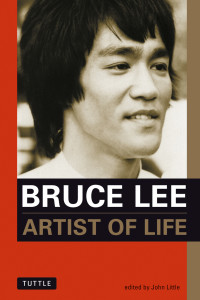Okay, so as I’ve been saying, it seems to me that learning our individual creative process is more about unlearning. This can be super tricky.

I used to own a copy of Bruce Lee: Artist of life (I’m a forgetful loaner) and this acted as a bit of a guidebook back when I was developing my teaching philosophy. Lee’s philosophy has significant parallels to Taoism, Zen Buddhism and Vedic principles- wisdom that offers lessons that never tell you everything. I know this can be frustrating but I appreciate it because there is always space to figure things out how each of us needs to. There are so many things that we just cannot understand by being told. We have to live it out. Bruce Lee puts it this way:
“When there is freedom from mechanical conditioning, there is simplicity. The classical man is just a bundle of routine, ideas and tradition. If you follow the classical pattern, you are understanding the routine, the tradition, the shadow – you are not understanding yourself.”
And I don’t think it’s too outlandish to say that our interest in creative expression has something to do with a desire to figure out some things about ourselves and this life. As much as we want to belong and be successful, we seem deeply dissatisfied with the ‘one-size-fits-all’ flavour of learning. Our culture has handed us some knowledge that is useful, somewhat useful, slightly detrimental and all out destructive and it can get real foggy in terms of what’s good for us and what we need to throw away. This may sound daunting but art is actually a pretty safe place to play around and sort things out if you’re not bound by some idea of what it’s supposed to be.
So when I lay out the following list of pre-existing knowledge tied to art, I want it to be understood that it is not my aim to present these ideas as wrongful or the arch enemies of all creative exploration. Some of these may actually be highly useful to one individual and deeply wounding to another. I only wish to unveil some common preconceptions that could potentially pose as a barrier to your possibilities. Remember, there is no final, definitive, singular criteria for what art is and how it’s made.
These are the most popular in my experience. In no specified order:
00I:
The best artists are those who can draw/paint/make something accurately.
00II:
Some of us have the creative spark and some of us don’t.
00III:
We need to know the rules before we break them.
00V:
We need to be ‘inspired‘ in order to create.
00VII: All successful art is confirmed when the audience responds exactly as the artist intended.
00VIII: We don’t understand art unless we get what the artist intended.
00IX: An ‘art critique’ is a necessarily painful affair.
00X: If we sell work, we are good and successful artists.
*(There are a multitude of more subtle hindering-type ideas that can be taken for granted and I will also address some of those in the future)
If you’re wondering what the heck to do once you’ve thrown out a heap of your limitations, I will be getting to some more practical ideas about that eventually.
And if you’ve convinced yourself that some of these statements are definitive- that art is and must be made a certain way on such set terms and, yet, you have not expanded your creative capacity, perhaps you want to let those ideas go, even just temporarily, to see what happens. Keep in mind though, that we can’t fake it. We can’t just pretend to set aside our beliefs and secretly hold them tight in our fists. It’s not easy making things with clenched fists.
Out beyond ideas of wrongdoing and rightdoing there is a field.
I’ll meet you there.
-RUMI
*Disclaimer: No copyright infringement intended. I do my best to track down original sources. All rights and credits reserved to respective owner(s). Email me for credits/removal.
